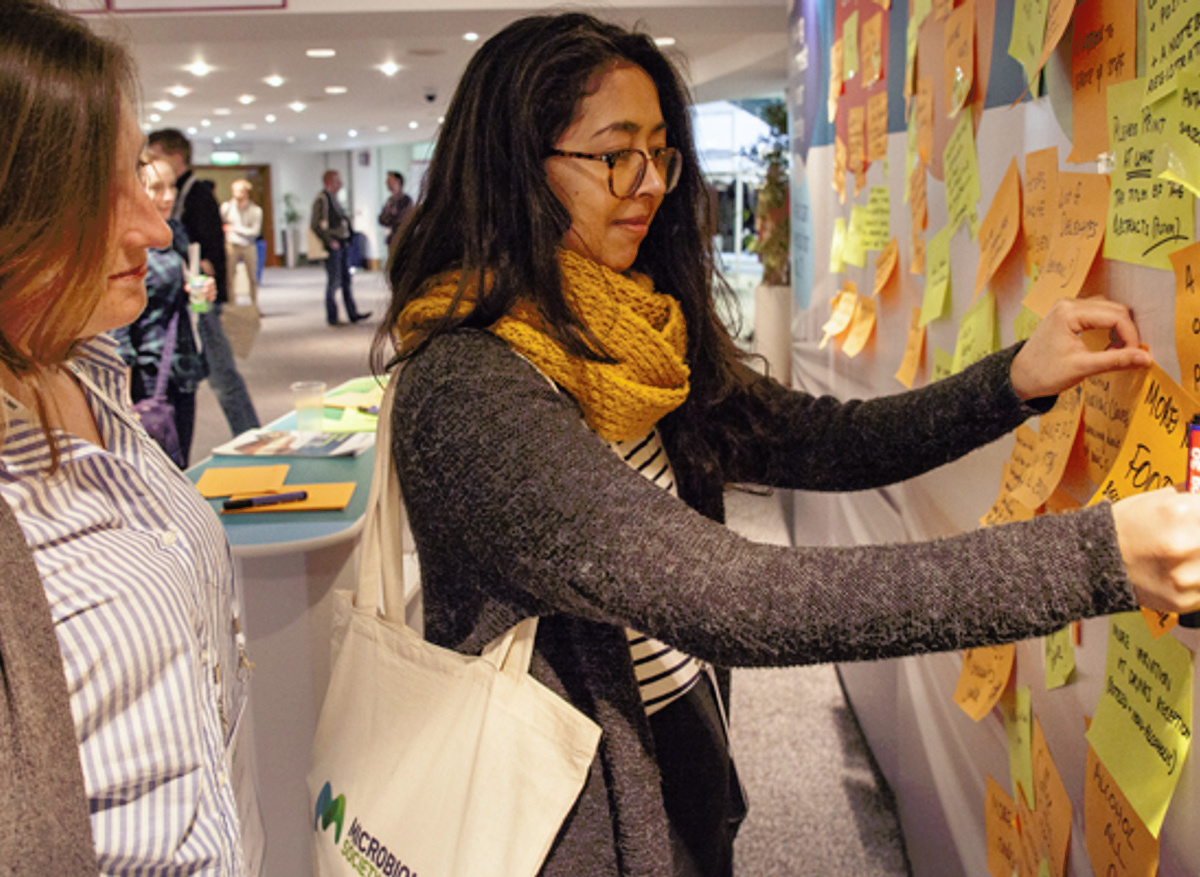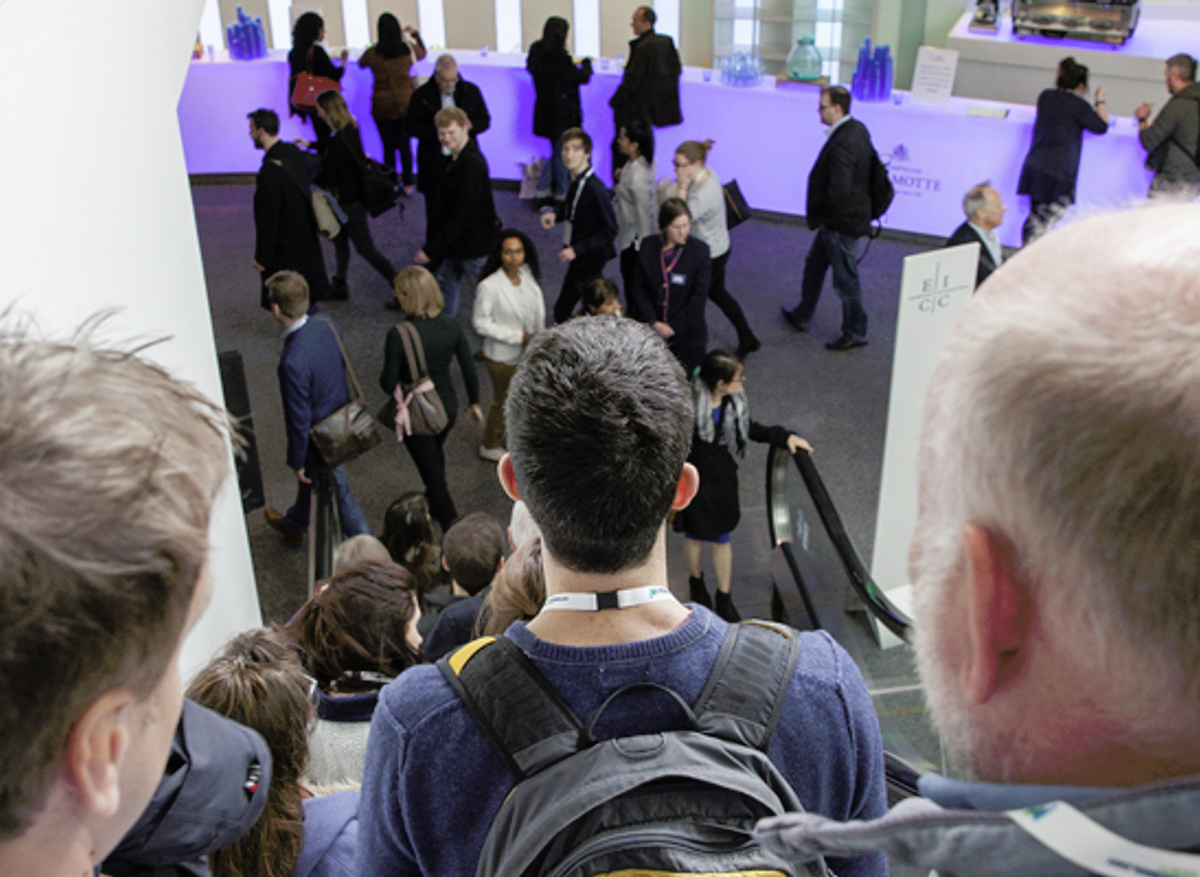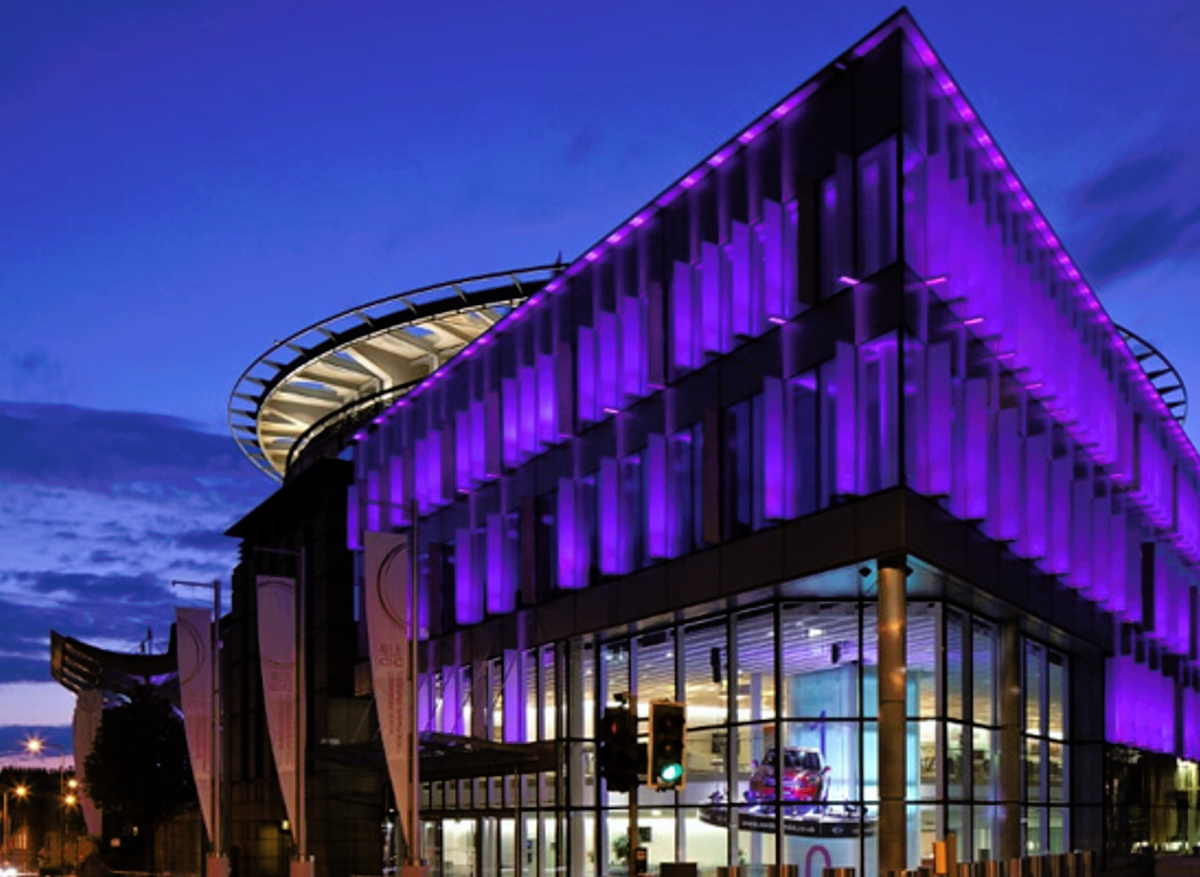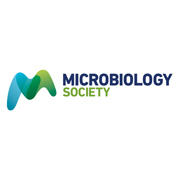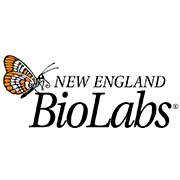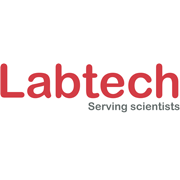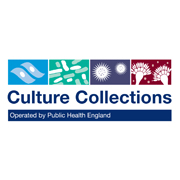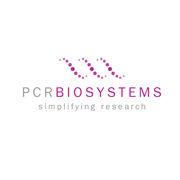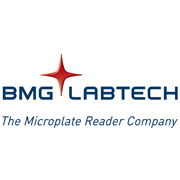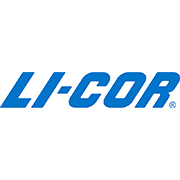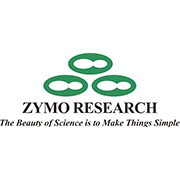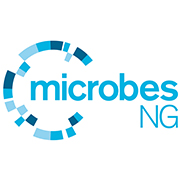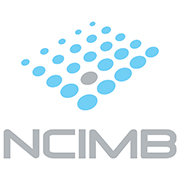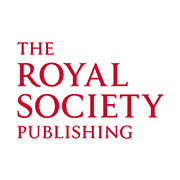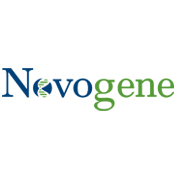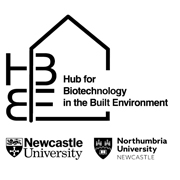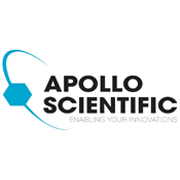The Microbiology Society’s flagship Annual Conference 2020 was originally scheduled to take place between 30 March – 3 April 2020 in Edinburgh, Scotland.
Due to the continued spread of SARS-CoV-2, the cause of COVID-19, the Council of the Microbiology Society, as Trustees of the Society, took the difficult decision to cancel this event.
The Scientific Conferences Committee are currently looking to reschedule much of this year’s meeting and scientific sessions to include them in next year’s Annual Conference.
Annual Conference 2021 is now scheduled to take place between 12 –16 April 2021 at Birmingham International Conference Centre (ICC)
Publish with us
While we hope many of our speakers from this year will submit again to the 2021 conference, we understand there are often other commitments, or indeed - pressure to publish their results before then.
In this case, our academic journals at the Microbiology Society are ready and willing to evaluate and review manuscripts in a multitude of different forms. Whether research, short communications or methodologies - we're always here to serve the community, and ensure your work reaches the widest possible audience. If you'd like to discuss transforming your abstract or talk into a manuscript, please contact our Head of Journal Development, Alexander Mulhern at [email protected] and he will be happy to offer guidance.
Image: rabbit75_ist/Thinkstock.
No session result(s).
No lecture result(s).

Alexander Fleming was the first President of the Microbiology Society (1945–1947) and received a Nobel Prize for his discovery of penicillin. In celebration of the Society’s 75th anniversary, Annual Conference will include an additional 'Fleming Showcase' day at the start of Annual Conference week. The event will be available to book separately to the rest of the conference and will run on Monday 30 March 2020, followed by the standard four days of scientific sessions.
The Microbiology Society's Fleming Prize is awarded each year to an early career researcher who has achieved an outstanding research record within 12 years of being awarded their PhD. The Fleming Showcase will be used as an opportunity to formally observe the legacy of past Fleming Prize winners and to examine some of the most exciting science from around the globe.
The day is organised by a committee of Past Fleming Prize Winners, which is chaired by Sir Paul Nurse and will be compèred by academic, writer and television broadcaster, Professor Alice Roberts.
Registration
| Ticket | Fleming Showcase (30 March 2020) |
|
Student member |
Free for those registered for any part of the main Annual Conference |
| Other delegates | £60 |
Upon registration, you should receive an automated confirmation email. Please contact [email protected] if after 24 hours this has not been received.
Registration for the main Annual Conference requires a separate booking. More information can be found on the 'Registration' tab.
Fleming – five-minute thesis

These sessions are an opportunity for the best early career microbiologists to present their work in front of world-leading scientists, including Sir Paul Nurse FRS.
The day will focus on the influence of both established and up-and-coming scientists in addressing global challenges and will offer an opportunity to hear the legacy of past Fleming Prize winners.
An audience with past Fleming winners
We invite the community to submit questions for our panel of previous Fleming Prize winners, including:
- Sir John Beringer, Prize winner in 1979 (University of Bristol, UK)
- Professor Adrian Whitehouse, Prize winner in 2005 (University of Leeds, UK)
- Professor Nicola Stanley-Wall, Prize winner in 2009 (University of Dundee, UK)
This is your chance to find out about their research, careers and scientific lives. Chairing the panel session are two members from our Early Career Microbiologists’ Forum; Nicky O’Boyle and Justine Rudkin. We will also record the event as a resource to share with the community.
Fleming Committee:
This special day is organised by its own Committee of Past Fleming Prize Winners who have created the content for the day and will judge the 5-minute thesis submissions. The Committee comprises:
- Sir Paul Nurse FRS (Francis Crick Institute, UK) – Committee Chair
- Sarah Coulthurst (University of Dundee, UK)
- Neil Gow (University of Exeter, UK)
- Andrew Davison (University of Glasgow, UK)
- David Grainger (University of Birmingham, UK)
- Tracy Palmer FRS (University of Newcastle, UK)
Members get heavily subsidised registration fees for Annual Conference and other Society events. Join now to enjoy these discounts and many other opportunities that are designed for microbiologists at all stages of their career.
| Ticket | 1 day | 2 days | 3 days |
4 days |
| Non-member | £239 | £478 | £718 | £861 |
| Full member | £135 | £270 | £405 | £486 |
|
Concessionary/ |
£83 | £166 | £249 | £299 |
| Affiliate member | £219 | £458 | £697 | £840 |
| Student member | £73 | £146 | £219 | £263 |
The Microbiology Society's Annual Conference is the UK's largest annual gathering of microbiologists. To ensure the meeting remains of value for this broad microbiology community, ticket prices have not increased from last year beyond the rate of inflation and a 10% discount is available for anyone registering for 4 days of the meeting. Moreover, early career microbiologists and students can attend the Fleming Showcase for free.
What's included in your registration fee?
- Admission to all scientific sessions
- Access to all professional development sessions
- Admission to lunchtime events
- Full access to the trade exhibition
- Full access to scientific poster sessions
- Hot buffet lunch daily
- Tea and coffee breaks daily
- Two drinks during the drinks receptions on Tuesday, Wednesday and Thursday evenings
- A delegate bag and Conference material
- A Conference programme guide
- Access to an online abstracts book
- Access the new event app
- Certificate of Attendance
- Access to CPD Points
What’s not included in your registration fee?
- Registration for the Fleming Showcase requires a separate booking. More information can be found on the Fleming Showcase tab.
Registration confirmation
Upon registration you should receive an automated confirmation email. Please contact [email protected] if after 24 hours this has not been received.
Visa applications
If you need a letter of invitation for a visa application, we will be happy to supply this after we have received full payment. To find out if you need a visa to visit the UK, please visit the UK visa and immigration website.
It is the policy of the Microbiology Society not to supply an invitation letter to any delegate without payment and we will not reply to any request from an unregistered delegate. When the delegate has paid, the Conference office will email back a confirmation/receipt letter and, upon request, a letter of invitation, which may be used to obtain the necessary visa.
Please note that all conference delegates are responsible for their own travel and visa arrangements; the Microbiology Society will not take any responsibility for travel or visa problems.
Payment information
All registration fees must be paid in full BEFORE arrival at the conference. Any outstanding registration fees must be paid before admittance will be granted to the conference.
Cancellations
Refunds are not provided, however substitutions of attendees can be made at any time by contacting [email protected].
Abstracts
Annual Conference attracts over 1,600 attendees for the UK’s largest annual gathering of microbiologists. It is designed to cover the breadth of microbiology research and its oral abstracts and posters reflect this comprehensive scientific programme.
The Society has produced a guide to give delegates some tips on how to write a great abstract.
Oral presentations
All speakers are requested to check their presentation titles and timings. Please note, individual presentation times within a session may have been changed by the Session Organiser since you were originally invited.
Please use widescreen (16:9) format for PowerPoint presentations. Please also consider the readability of your slides. We recommend using a dark sans serif font on a light background and avoiding all-capitals and green or red/pink text. For further guidance, please refer to the British Dyslexia Association guidance.
Speakers are required to upload a copy of their PowerPoint slides at least two hours prior to their presentation time from the Speaker Preview area. This will be situated in Lomond Foyer (on Level 0). Dedicated AV technicians will be available to assist you during the opening hours.
Speaker Preview Room opening hours
| Sunday 29 March | 16:00–20:00 |
| Day 1 (Fleming Showcase): Monday 30 March | 07:30–17:30 |
| Day 2: Tuesday 31 March | 07:30–17:30 |
| Day 3: Wednesday 1 April | 07:30–17:30 |
| Day 4: Thursday 2 April | 07:30–17:30 |
| Day 5: Friday 3 April | 08:30–14:00 |
Posters
For abstracts that are awarded a poster, Annual Conference provides an excellent platform for emerging scientific research.
Posters will also be rotated half-way through the event this year.
For 2020, all posters will be divided into two blocks and will remain up for two days each. See the document below for more information.
Those who are presenting a poster must ensure the work is presented as below. Incorrectly formatted posters will not be displayed.
- Poster size: A0 size 841mm(w) x 1189mm(h) – your poster must not exceed these measurements.
- Poster layout: must be portrait orientation in line with guidance. Please consider the British Dyslexia Association guidance when formatting your poster.
- Posters will be displayed on poster boards measuring 1m(w) x 2m(h), one to a side.
- Posters should be fixed by Velcro (provided at the Conference).
- Your viewing time and details on setting up and taking down will be advised prior to the Conference.
We have produced a guide on how to give a poster presentation, which can be downloaded below:
Event app
This year’s Annual Conference now includes an event app.
This is available as a free download for all registered delegates. It has primarily been designed to help you make personal connections with other attendees (subject to your permissions).
The software also offers live event notifications, personalised schedules across the whole of Annual Conference week and options to search all of this year’s 1,000+ abstracts.
Download the Attendify app in your App Store and search for ‘Microbiology Society AC20’.
Sir Howard Dalton Young Microbiologist of the Year Competition
Each year, the Young Microbiologist of the Year Competition recognises and rewards excellence in science communication by a Microbiology Society member who is a postgraduate student or postdoctoral researcher, having gained their PhD in the last two years.
During the Annual Conference, judges will be visiting posters and listening to offered orals by delegates who have entered the competition via the abstract submission. Finalists will be notified in early summer if they have been selected, and will be invited to give a 10-minute oral presentation (plus 5 minutes for questions) at the final at the Society’s Annual General Meeting in September 2020.
Poster prizes
There will be poster prizes available to recognise the best poster presenters over the course of the entire Annual Conference. Please see below for details of each prize. All poster prize winners will be invited to present their poster again at the Society's Annual General Meeting in September 2020.
People’s choice
All poster presenters will be entered into the People's Choice Poster Prize, which will identify the three most popular posters presented during the Annual Conference. All delegates will be asked to choose their favourite three posters that they visited and submit these on the voting slip provided in their delegate bag. Winners will be notified in the week commencing 11 May.
Early Career Microbiologists' Forum Poster Prize
All members of the Early Career Microbiologists' (ECM) Forum who are presenting a talk or poster will be considered for the ECM Forum Poster Prize. This prize will be judged by the Executive Committee and will recognise the most promising ECM presenters. The winners will receive a prize and certificate.
Please note, the deadline for joining the ECM Forum in order to be considered for the Early Career Microbiologists' Forum Poster Prize is 3 March 2020.
Destination Edinburgh
A diverse and vibrant city, Edinburgh is steeped in history. As well as being the capital city of Scotland, it is the leading festival city in the world and a UNESCO World Heritage Site.
Full of cultural and historical sites to visit, Edinburgh has both a medieval Old Town and an elegant Georgian New Town, both of which are situated around the terrain of the volcanic Arthur's Seat, the Pentland Hills and Edinburgh's Waterfront.
Edinburgh is also globally recognised as a world-leading authority in the sciences and remains home to some of the leading centres of microbiological research in Europe. Current researchers follow in the footsteps of past scientists who have advanced medicine: from the discovery of chloroform anaesthesia and the development of the hypodermic syringe to the development of MRI scanner and insulin. Today, pioneering research is underway into regenerative medicine, in vitro imaging, bio-informatics and cancer treatment, as well as food security and animal welfare.
But Edinburgh's most famous scientist is arguably Alexander Fleming, a medical scientist who won the Nobel Prize for his discovery of penicillin and who was the first President of the Microbiology Society. To celebrate the Society's 75th Anniversary in 2020, Annual Conference is taking place in the city close to Fleming's heart and where he served as Rector of Edinburgh University.
EICC
Annual Conference will take place at the Edinburgh International Conference Centre (EICC).
Edinburgh International Conference Centre
The Exchange
Edinburgh
EH3 8EE
General enquiries: +44(0)131 300 3000
The award-winning EICC is a centre of excellence for world class events and conferences in the heart of Edinburgh.
EICC's impressive facilities include adaptable auditoria, break-out suites and spacious exhibition and reception areas, which will all be for the exclusive use of the Microbiology Society and its delegates during the week of Annual Conference 2020.
Sustainability
The EICC considers the environmental impacts affecting every procurement decision associated with the running of events.
Preference is given to products and services certified by recognised authorities such as Scottish Environmental Protection Agency (SEPA), Environmental Protection Agency (EPA), EMS ISO 14001, Eco Management and Audit Scheme (EMAS), Green Tourism Business Scheme (GTBS), Green Globe and other applicable sustainability standards.
All food is freshly prepared on the premises from seasonal ingredients sourced within 200 miles of Edinburgh. The catering team adheres to an environmentally-sound approach to the disposal of waste including food, packaging, cooking oils and liquids.
The EICC’s strategic direction is to build on its reputation as a 'green business' and to develop its reputation for best practice in sustainability. They aim to achieve 20% reduction of our overall CO2 per m2 by 2020 relative to 2013 baseline.
EICC won the coveted Sustainable Event Excellence Award in March 2018.
Carbon footprint offsetting
Delegate travel is the biggest contributor to the carbon emissions involved with Annual Conference, we would therefore like to encourage all delegates to offset their carbon footprint.
A carbon offset is a way to compensate for your emissions by funding an equivalent carbon dioxide saving elsewhere.
You can calculate and offset your carbon footprint from travelling to the conference by using this carbon calculator, this supports international projects and sustainable development worldwide.
Crèche
The Society is again teaming up with Nipperbout to provide a free crèche at the Annual Conference 2020. The crèche will be available to all children of delegates between the ages of 0 and 12 years.
All registered delegates will be offered the opportunity to make use of these free childcare services, which will be offered on a first-come, first-served basis.
Please note the crèche will be closed for lunch and parents are responsible for providing food for their children. Lunch is not provided by the Society or the crèche as part of this offer. It is imperative that you collect your child/children at lunchtime as the staff require a half hour break. Water and healthy snacks will be available during crèche hours.
Opening hours
- 30 March, Monday morning 08:45 to 13:15
- 30 March, Monday afternoon 13:45 to 18:30
- 31 March, Tuesday morning 08:45 to 13:15
- 31 March, Tuesday afternoon 13:45 to 18:30
- 1 April, Wednesday morning 08:45 to 13:15
- 1 April, Wednesday afternoon 13:45 to 18:30
- 2 April, Thursday morning 08:45 to 13:15
- 2 April, Thursday afternoon 13:45 to 18:30
- 3 April, Friday morning 09:15 to 12:30
- 3 April, Friday afternoon 13:00 to 17:00
How to register
In order to register, visit the Nipperbout portal.
Existing account holders
Members who have already used the system can use their existing account to log in and request to register for the event using the event code: MSA300320
First registrant login: MSA300320
Password: MSA
Members who haven’t used the system before and want to register for crèche will be asked to create an account.
You can change your password once you have set up your account. Booking is on a first-come, first-served basis. Confirmation of your booking will be sent prior to the conference.
Please note that you are entering into an agreement with Nipperbout and not the Microbiology Society.
Nipperbout is an award-winning event childcare company with over 25 years of experience. For more information please visit the Nipperbout website.
We hope that this assists your attendance at the conference. Should you have any questions, please contact: [email protected]
Email [email protected] for further information.
Accommodation & Travel
Annual Conference is returning to Edinburgh in 2020. This is Annual Conference's most popular destination city and the Society encourages all delegates to secure accommodation and to make travel plans as early as possible as hotel rooms fill-up quickly.
Accommodation
To support you in securing your accommodation we provide links to our booking and accommodation services via Reservation Highway.
This travel and venue agency have secured negotiated rates at hotels to suit a broad range of budgets.
A booking form is also available below for those who prefer not to book online.
If you require any further information for personal or group hotel bookings, please call 01423 525577 (during office hours) or email [email protected] at any time.
Travel
Visitors to Scotland's capital are served with two major railway stations, an airport providing UK and international flights to Edinburgh and an extensive road network.
By air
Edinburgh International Airport is within 6 miles of the EICC. The Airlink 100 runs between Edinburgh Airport and the city centre every 10 minutes at peak times, with the journey taking 20 minutes. This service starts at 4:30 and runs until 00:22. Tickets cost £3.50 single and £6.00 return. Delegates are advised to disembark at Haymarket Railway Station and to follow signs for EICC on foot (five-minute walk).
The N22 bus also departs from the Airport and runs every 30 minutes through the night until the Airlink service starts again. For more information about these services, visit the Lothian Buses website.
EICC has an established relationship with Virgin Atlantic, who can offer discounted flights between Edinburgh and London on their new service, Virgin Atlantic Little Red. For more information on discounted flights, visit the Virgin Atlantic website.
By rail
Edinburgh has two railway stations:
- Waverley Station, which is 1.3 miles from EICC, is the city's main railway station and has direct routes to many cities across the country, including over 25 daily departures from London.
- Haymarket Station, which is just 0.4 miles from EICC, is a stop for many commuter and some UK train routes. Please ensure that you check with your rail network provider to find out if your train will stop at Haymarket or Waverley.
For more information on the rail network within the UK, please visit East Coast, National Rail or Trainline; a one-stop shop for train and coach travel.
By car
If you are travelling using a sat nav, please use the postcode EH3 8EE. The main entrance is on Morrison Street.
By bus
Edinburgh's main bus terminal is located at St Andrews Square. Visit Lothian Buses for more information on local bus services. Bus connections stretch right across the UK. For details of these routes please visit: www.nationalexpress.com or www.citylink.co.uk.
Coach
For information about travel by coach please visit the National Express website.
Car parking
- There are numerous car parks in close walking distance to the EICC. Please access the following links for further details:
- National Car Parks (NCP) in central Edinburgh
- Sheraton Hotel Car Park located 150 meters from the EICC, with limited accessible parking spaces
- Semple Street Car Park located 300 meters from the EICC
- Spaces near EICC available via yourparkingspace.co.uk
Early Career Microbiologists’ (ECM) Forum Co-chairing Scheme
The ECM Forum Co-chairing Scheme provides ECM Forum members with the opportunity to be involved in the chairing of scientific sessions at the Annual Conference. The Co-Chairs will not receive any monetary value in co-chairing and will not take the place of a session Chair, but will receive a fantastic professional development opportunity to learn about being a session chair from more experienced colleagues.
ECM Forum members are eligible to apply. Applications should be made when submitting an abstract via Oxford Abstract. All applications will be reviewed by the Society's Divisions and successful Co-Chairs will be introduced to the relevant session Chair in February.
Co-Chairs will receive a letter of thanks from the ECM Forum Executive Committee confirming that they participated in the Co-Chairing Scheme, and will be recognised in the conference programme.
For questions about the ECM Forum Co-chairing Scheme, please contact [email protected].
Professional Development sessions
In addition to the scientific programme, the Society will be hosting a series of Essential Skills sessions for all delegates wishing to enhance their professional skills in microbiology. Please register your interest in advance – spaces are limited and complimentary when registering for the day.
Please note, sessions will operate on a first come, first served basis. Please arrive with plenty of time to secure your place.
Teaching microbiology in higher education
Tuesday 31 March, 10:00–17:30
This symposium will deliver sessions dedicated to pertinent areas of interest for those involved in teaching in higher education. Delegates will have the opportunity to learn from the experience of those involved in AMR outreach and engagement activities. HEA fellowships will be explored in its wider breadth and an application workshop will allow delegates to receive feedback on how to write an application. The symposium will also create a platform for those involved in using and creating digital platforms for teaching microbiology with live demonstrations. Participants will have the opportunity to explore these platforms and hear from experts about its use. Those involved in teaching, wanting to pursue a teaching focused role or keep up to date with new techniques and standards, including post-doctoral demonstrators, are encouraged to attend.
Essential Skills: Entrepreneurship
Wednesday 1 April, 10:00–13:00
This session will provide participants with useful information about the key areas of business to consider when becoming a scientific entrepreneur. Participants will be given a checklist of considerations from patents and funding to marketing strategies and creating a team. Microbiology entrepreneurs will provide insight into how they transformed their scientific research into business ideas. Those interested in practicing presenting their business ideas or wanting feedback are invited to submit their proposal. This session will also be useful for those considering a business idea.
Essential Skills: How to secure a fellowship
Thursday 2 April, 10:00–17:30
Funding advisors will provide participants with greater clarity around fellowship strategies and application processes. Attendees will learn how to find the best fellowships for them and will learn from those who have recently been awarded fellowships. Those wishing to gain personal one-to-one feedback and advise from experts are welcome sign up to attend an allocated time slot during the application surgery. Early and mid-career researchers wanting to explore fellowship application processes are encouraged to attend.
Essential Skills: Unconscious bias
Friday 3 April, 09:30–12:00
This workshop will equip participants with the knowledge and skills to identify unconscious biases, understand their potential for impacting on decision making and develop techniques to minimise that impact. This interactive workshop will explore the way the brain processes information and makes shortcuts and assumptions on our behalf, without us even noticing. Participants will take part in discussions on strategies and mechanisms for managing our brain’s processing and ultimately, ensuring our actions are based on sound rationale and are not unconsciously biased. This session is suited to those in managerial positions or involved in staff management practices such as recruitment, appraisal and performance management. Those wanting to learn more about unconscious bias are also encouraged to attend.
Continued Professional Development CPD Credits
The Annual Conference has been accredited by the Royal Society of Biology (144 CPD credits), the Institute of Biomedical Science (category: Professional Activity) and the Royal College of Pathologists (28 CPD credits).
Those wishing to claim CPD credits should sign a daily register held at the Professional Development information desk, which is located in the exhibition hall. Further information can be requested by email at [email protected].
Grants
Society Conference Grants are available to support eligible members wishing to present at the Annual Conference. Support is also available for members requiring support for caring costs associated with conference attendance. Full information is available on the Society Conference Grant page.
Members not eligible for a Society Conference Grant can apply to the Travel Grant scheme. This supports attendance at events taking place in the period 1 April–30 June and also includes the full duration of the Annual Conference 2020.
The Microbiology Society Annual Conference is a key feature in the calendar of a microbiologist – from undergraduates to those more established in their career.
The scientific event is designed to offer ample opportunities for formal networking for both these groups at the meeting itself. Just as importantly, the social programme offers informal opportunities for delegates to make new friends and forge future collaborations.
Below you can find out more about the social programme for Edinburgh:
Social 1. Fleming Showcase drinks reception
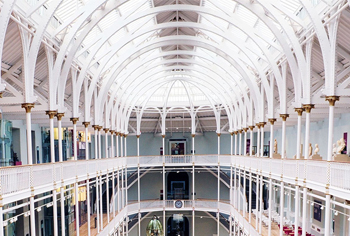
Monday 30 March 2020
Time: 19:30
Tickets: £FREE
Location: National Museum of Scotland, Chambers St, Edinburgh EH1 1JF
Annual Conference delegates are invited to join the Society and Fleming Committee for an evening reception.
The event is taking place in the Grand Gallery at the National Museum of Scotland - walking distance from the EICC and one of Scotland's most beautiful spaces.
Rising up through the four storeys, the museum has a spectacular array of objects that tell the history of the pioneering Scots who revolutionised modern science, including Sir Alexander Fleming's discovery of penicillin.
Whether you have attended the Fleming Showcase earlier in the day – or if you're arriving to attend another day of Annual Conference later in the week – all guests are warmly invited to this free drinks reception.
Social 2. Historical underground tour of Edinburgh
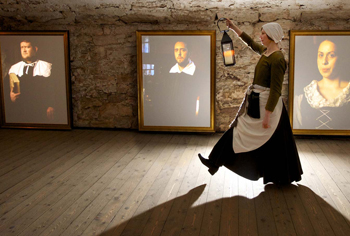
Tuesday 31 March 2020
Time: 20:00
Tickets: £25 (including VAT)
Location: The Real Mary King’s Close, 2 Warriston’s Close, High Street, Edinburgh EH1 1PG
Explore Edinburgh’s hidden history deep underneath the Royal Mile.
VisitScotland’s five star-rated attraction The Real Mary King’s Close will be opened up exclusively for registered Society delegates on the Tuesday evening of Conference.
The space is a warren of concealed underground streets and houses, which date back to the 1600’s, where real people lived, worked and died. Through actors, displays and guides, you’ll discover tales of the plague victims, murderers and their prey – all of whom have become the ghosts that haunt the city.
The evening will include drinks and light bites and will typically take guests between two and two and a half hours to complete.
Social 3. Early career microbiologists networking evening
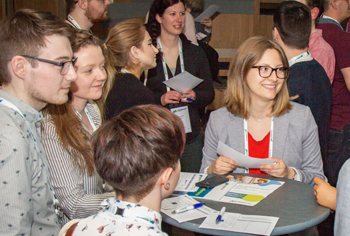
Wednesday 1 April 2020
Time: 19:30
Tickets: £20 (including VAT)
Location: Akva Bar, 129 Fountainbridge, Edinburgh EH3 9QG
The Early Career Microbiologists’ Forum Executive Committee will be hosting an evening social event where attendees can network with other early career microbiologists over food and refreshments.
This evening will be a great opportunity to meet potential collaborators and scientists from the breadth of the microbiology discipline.
Whether it’s your first time in Edinburgh or Annual Conference and you’d like to meet new people and brush up on your networking skills, or you’d just like to come and enjoy an evening of fun and socialising, be sure to join the Wednesday networking event.
Social 4. Quiz night

Thursday 2 April 2020
Time: doors open from 20:00 (quiz starts from 20:30)
Tickets: £22 (including VAT)
Location: Ghillie Dhu, 2 Rutland Place, Edinburgh EH1 2AD
The ever-popular Annual Conference quiz will be taking place at Ghillie Dhu – a dramatically-vaulted Georgian converted church.
The quiz will start here at 20:30 with prizes up for grabs. Taking place in the shadow of Edinburgh Castle in the West End of the city centre, the evening is designed to give you a flavour of Scotland and its historical capital.
Meet old and new friends and get together in teams of six+ to compete for the prized Society quiz medal.
Explore Edinburgh

Edinburgh is the perfect destination if you’re looking to add a weekend on to the end of your Annual Conference. This historical city plays host to the world’s best known comedy festival and has something for everyone – regardless of your taste, style or budget.
The city has great shopping, ranging from some of the most exclusive luxury brands to independent talent and equally diverse food options, from pop-up street food through to Michelin-starred restaurants. From the rich history that you’ll find in every street to the various green spaces dotted around the city, Scotland’s capital is the perfect extended getaway for delegates.
Visit This is Edinburgh to find out more about all of the best things to do, see and enjoy in this historical capital.
All our exhibition stands have now sold out
Annual Conference provides the ultimate gathering location for over 1,600 microbiologists and other professionals of related fields from over 30 countries.
If you have missed out on exhibiting at this event there are still a number of sponsorship opportunities available to help promote your company to a key audience of delegates. Please email [email protected] today to discuss package options to suit you.
We also hold a number of other events throughout the year where you can exhibit or sponsor at. Full details can be found on our exhibitor and sponsorships page.
Accommodation scams
We have been made aware of rogue agencies contacting our exhibitors out of the blue claiming to be from the Society.
If you are unsure about whether the communication is genuine or fraudulent please contact the Society directly.
Exhibition and sponsorship
We have Gold, Silver and Bronze packages, or Pick and Mix options that can be tailored to your needs and budget.
Detailed information about available exhibition packages can be found in the Exhibition and Sponsorship pack, which can be downloaded below.
Registration form
To book your exhibition or sponsorship place, please download the fillable registration form below and return to [email protected] with your logo and website link:
Floorplan
Download the floorplan showing the available exhibition spaces or contact [email protected]
Exhibitors
Sponsors


